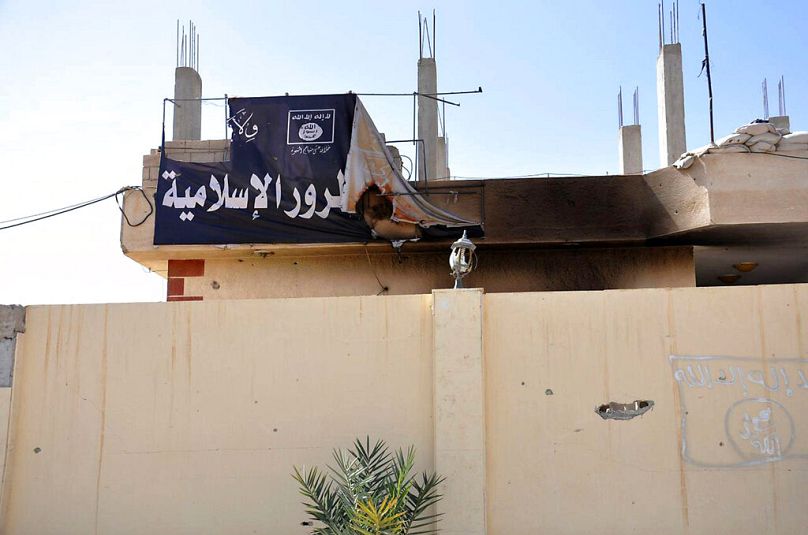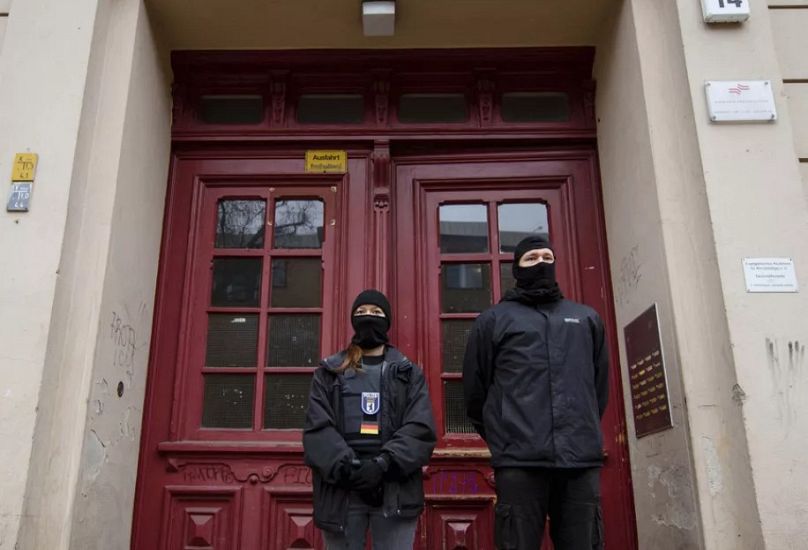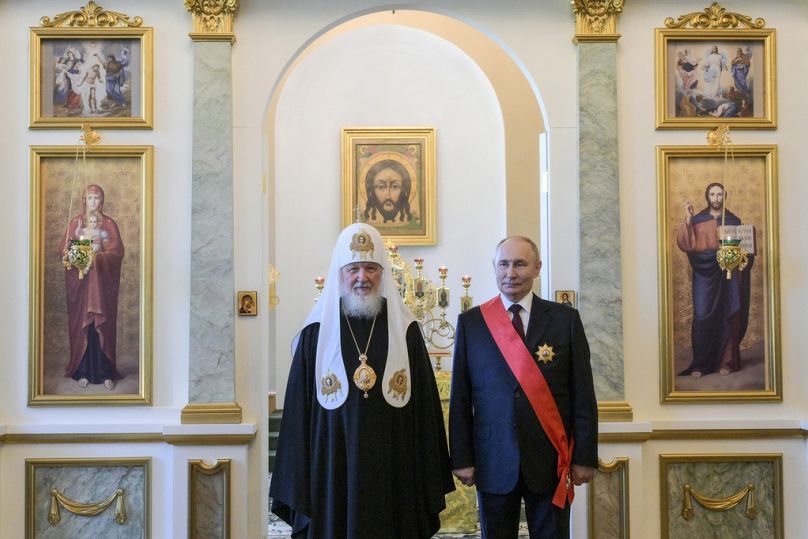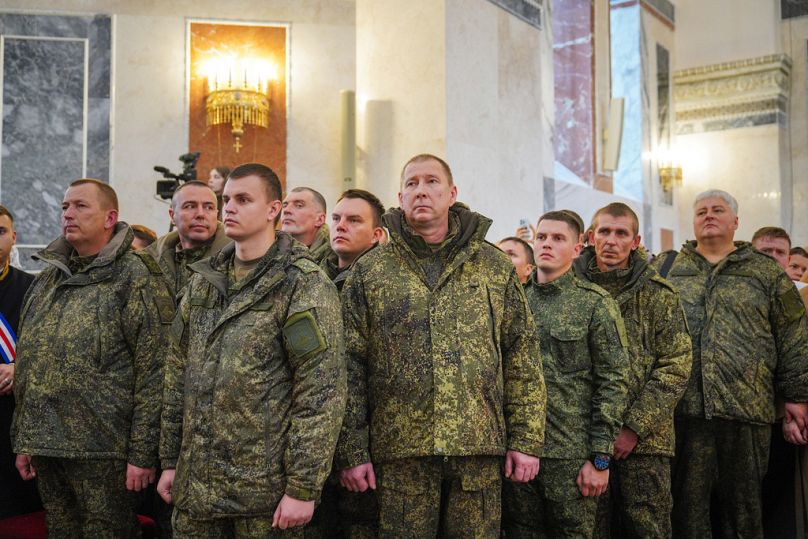The so-called Islamic State group and Russia use similar tactics: propaganda, disinformation, and targeted recruitment of vulnerable groups. Hybrid warfare today, terrorism back then – methods designed to destabilise societies.
Russia is reportedly using so-called "low-level agents" in its hybrid warfare against the West – ordinary civilians recruited, often via social media, to carry out relatively minor acts of espionage and sabotage.
These acts can include arson, photographing or filming military or critical infrastructure, or even sending parcel bombs. The goal is always the same: to create chaos and insecurity among the population.
In his October government statement, German Chancellor Friedrich Merz also accused Moscow of waging hybrid warfare against the West.
Hybrid warfare combines military, political, economic, and cyber tactics to blur the line between war and peace.
In comparison, the so-called Islamic State terrorist group (IS) has also been accused of a form of hybrid warfare, using the internet to radicalise and unsettle people in the West.
"There's this notion that hybrid warfare is either little green men, like in 2014, or disinformation," Kacper Rękawek, senior research fellow and programme director at the International Centre for Counter-Terrorism (ICCT), told Euronews. "But there are many other aspects – crime, for example."
"If you look at Russia's military doctrine, at interstate terrorism – state against state – they are fully aware that hybrid warfare is a tool they can use," Rękawek added.
He explained that the approach generally remains the same: morally questionable individuals are recruited because they are more pliable and easier to manipulate.
"Those are Russia's natural allies," he claimed. This approach allows Russia to conduct hybrid warfare by using criminals as proxies in Europe, much like the so-called IS once recruited European criminals for violent operations.
Experts draw parallels between the two: the recruitment and operational methods of Russian intelligence resemble those used by IS, which since its founding in April 2013 has sought to establish a totalitarian state under an ultraconservative interpretation of Sharia law — a system of religious, moral, and legal rules based on the Quran and Sunnah.
IS is known for particularly brutal tactics, often staged for maximum media impact, targeting anyone they consider an "infidel". According to Germany's domestic intelligence agency, the biggest threat comes from lone actors or small groups inspired by such propaganda.
Between faith and influence
Both Russia and IS rely on ideologically charged propaganda. IS mainly targeted young, often marginalised Muslims around the world – men and women – offering them a sense of community and purpose.
Between 2012 and 2017, mosques in Germany became recruitment hubs, notably the Fussilet 33 mosque in Berlin's Moabit district. A study by the Konrad Adenauer Foundation found that preachers there promoted Salafist teachings and built contacts with fighters in Syria.
Early on, they urged followers to join Islamist groups like Junud al-Sham. Later, they backed the so-called Islamic State. Looking back, the mosque is seen as IS' most crucial recruitment centre in Germany.
Just as IS between 2013 and 2019 deliberately mobilised specific groups, Russia also uses ideologically tailored messages – whether religious or nationalist – to generate loyalty and readiness to act.
Does Russia recruit from Russian Orthodox communities in Germany?
Russia targets not only nationalists but also those on the margins of society. The ideal "low-level agent" is either ideologically motivated or seeking financial security, Dr Hans Jakob Schindler, head of the Counter Extremism Project (CEP), explained.
Unlike traditional extremist groups, these low-level agents rarely act purely out of ideology, since financial incentives almost always play a part. "Precarious economic circumstances combined with ideological affinity make for the perfect combination," Schindler said.
Russia actively recruits socially marginalised, often Russian-speaking individuals across Europe to act as proxies in hybrid warfare operations. Vulnerabilities in specific communities are exploited to advance Russia's geopolitical goals, according to a report by the International Centre for Counter-Terrorism (ICCT).
Observers believe it is possible that Russia also recruits within Russian-speaking communities in Germany. Russian Orthodox congregations, in particular, are under scrutiny due to their close ties to the Orthodox mother church in Russia.
"The Russian Orthodox Church is very close to the Kremlin and has supported Russia's wars of aggression since 2014, and again in 2022," Schindler noted, stressing, however, that he wouldn't describe the church itself as "particularly vulnerable".
An Orthodox priest, speaking to Euronews on the condition of anonymity, said the Russian narrative seems to have become "a bit more cautious".
"For example, their dioceses now say – and this was a directive from the Moscow headquarters of the Russian Patriarchate – 'we don't get involved in political debates; we're only here to serve the religious needs of local people.' That, however, needs to be questioned," he said.
The Church acts as an ideological pillar for the Kremlin, mobilising people by having Patriarch Kyrill I and other church leaders frame the war as a defence of Orthodox values against Western influence.
In March last year, the Russian Orthodox Church issued a decree calling Russia's war against Ukraine a "holy war", aimed at ending Ukrainian independence and imposing Russian rule. The decree also claimed the conflict was necessary to "protect the world from the onslaught of globalism and the triumph of the West, which has succumbed to Satanism."
According to the cleric, some Russian Orthodox communities promote a very particular worldview in which bishops hold almost unquestioned authority. "Once the service is over, it's very difficult to challenge what the bishops say. They are treated almost like gods and wield significant authority," he explained.
How propaganda and fear shape societies
Russia and IS both rely on targeted propaganda and disinformation to weaken societies. Their strategies are broadly similar, combining outright violence with subtler methods of disruption.
The difference lies in the response. "We were all in agreement: IS is evil," said Rękawek. "With Russia, that's not the case, which is why the reaction to Russian hybrid warfare is far less clear-cut. People talk about targeting specific groups, calling it sabotage or diversion, but they don’t lump it together under one label. In fact, many experts, politicians, and decision-makers in the West accept the term 'hybrid warfare' or 'hybrid campaign', because in the public eye it still feels a long way from terrorism."
Dr Christopher Nehring, director of the Cyber Intelligence Institute and an expert on disinformation, told Euronews that hybrid attacks primarily target the psyche of society.
"Of course, it's worrying when individuals are harmed – say, in arson attacks by so-called low-level agents – but strategically, for the state as a whole, it doesn’t really matter," he explained.
"The safety of each person must be protected as best as possible, but we cannot let that dictate our strategic approach. With terrorist groups – such as the RAF or IS –that was always part of the communications strategy: terror is terrible, but we don't let it control us," Nehring said.
"The same applies to Russia. Minor incidents shouldn’t frighten us, but we do need to build psychological resilience and communicate effectively," Nehring added, noting it's clear the current level of protection "is still not sufficient".
How can a society protect itself against hybrid warfare? Find out on Friday in the fifth part of the Euronews series "Putin's secret terror in Germany".















